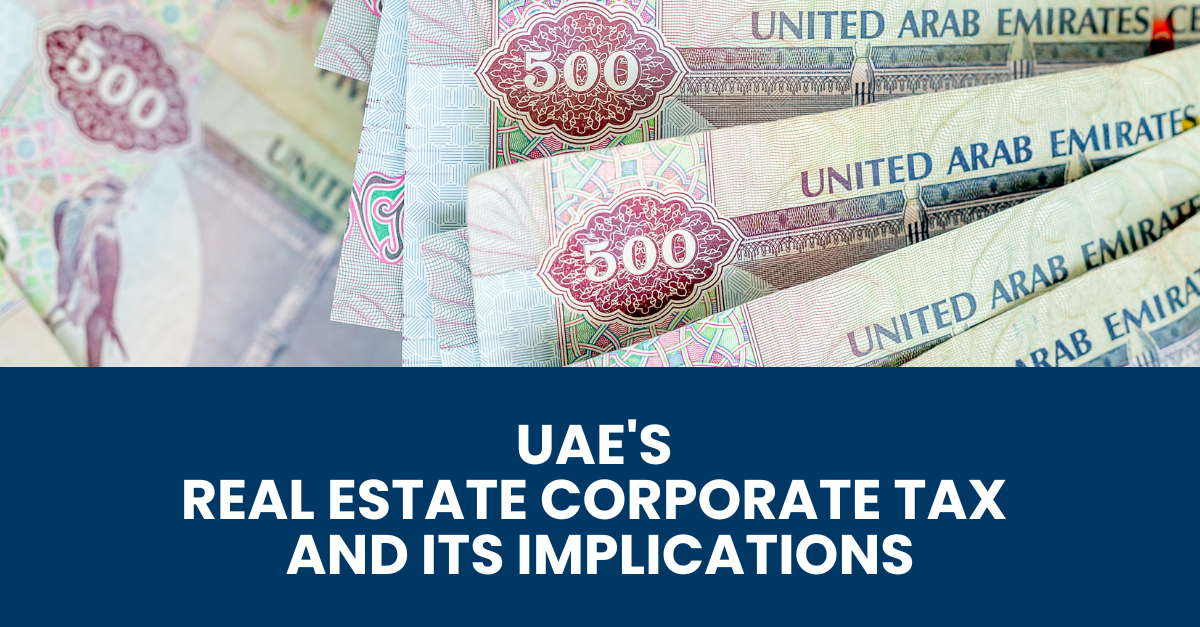Here’s what you need to know about UAE’s new real estate corporate tax
With UAE’s real estate corporate tax structure undergoing a major change, a few repercussions and disruptions will follow. However, in the long run, things will settle down, clarity will emerge, and it will be business as usual. But first, a look at what exactly has transpired:
Early this month, the UAE’s Ministry of Finance declared that foreign companies and other non-resident juridical persons will be subject to a 9% corporate tax on income earned from real estate and other immovable property in the UAE. The new law was announced in December 2022 and became effective on June 1, 2023.
In view of this, all local and foreign companies will have to register within one year to avoid penalties. Businesses will become subject to UAE tax from the beginning of their first financial year that starts on or after June 1, 2023, at a rate of 9% on profits above AED 385,000.
However, real estate investment income earned from immovable property owned by foreign or UAE resident individuals, either directly or through a trust, foundation or other vehicles treated as fiscally transparent, will generally not be subject to corporate tax, provided it is not a licenced business activity.
Moreover, there is a relief for SMEs and likely exemptions for export-focused free zone activities. Additionally, Real Estate Investment Trusts (REITs) and other Qualifying Investment Funds can avail exemption from corporate tax on income derived from investment in UAE immovable property, provided that the relevant conditions are met. Investment in real estate by individuals in a personal capacity is also not subject to the new tax.
The law applies to immovable properties held or used in a business and for investment purposes in the country. Also, there will be neutrality between domestic and foreign companies earning income from immovable property. An important thing to remember is that the compliance requirements of this tax differ from those related to VAT.
The corporate tax on income derived from UAE real estate and other immovable property by foreign juridical persons is in line with international best practices, which stipulate that properties are taxable in the country they are located in.
Proactive steps taken by UAE to clarify the new structure
In order to understand the new tax regime, concerned entities need to gain a broader understanding of the corporate tax administration for resident and non-resident persons in the UAE, unincorporated and incorporated partnerships, and the treatment of family foundations and trusts. The Ministry of Finance recently held a virtual session explaining all the relevant aspects of the new tax structure.
Moreover, Dubai’s Department of Finance (DoF) has launched an integrated training programme, IMTITHAL, to raise awareness of the new tax. Now that the new corporate tax law has been declared, it is prudent for UAE corporates to start assessing how they will be impacted. It will do them good to get ready for compliance with the new law sooner rather than later.




